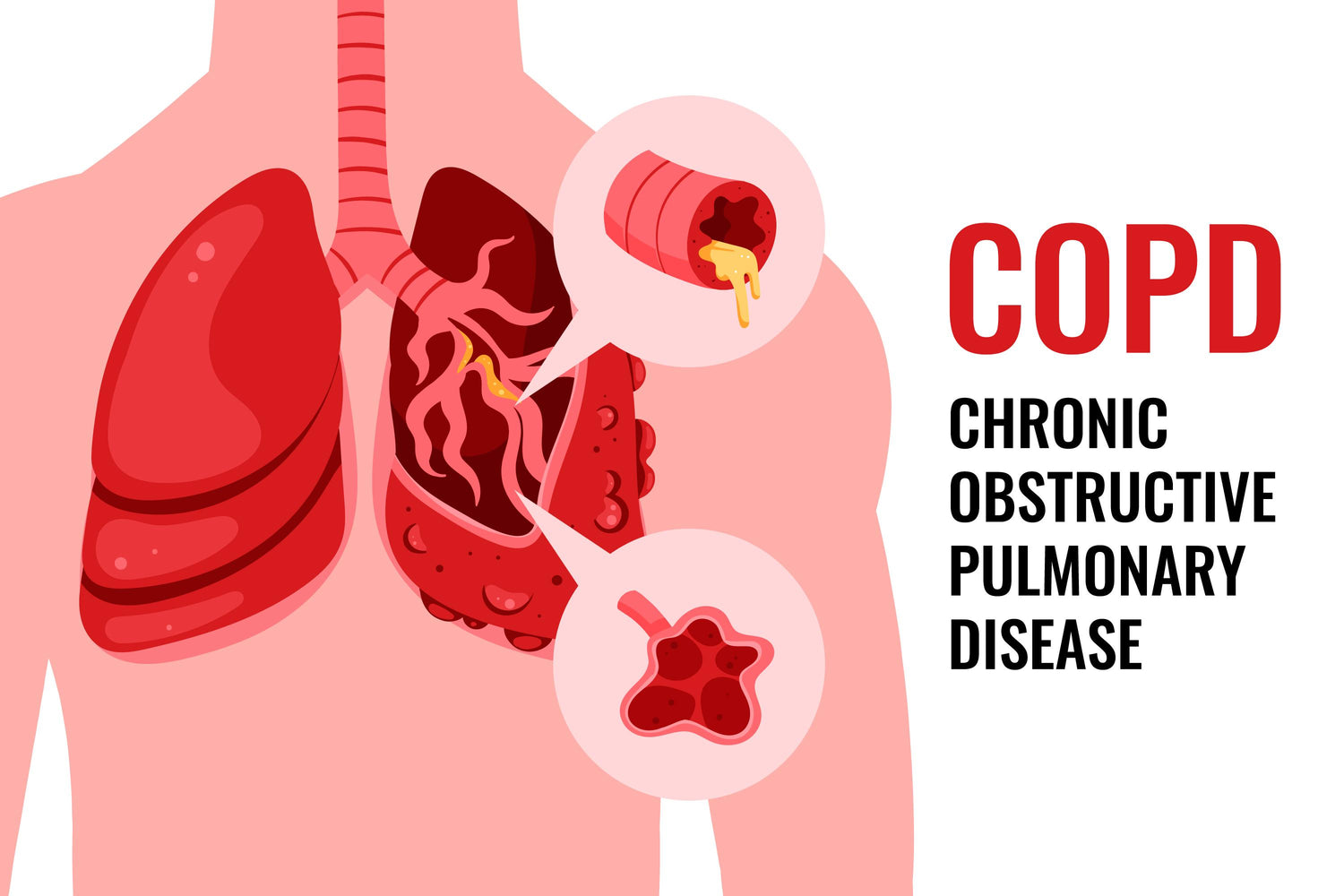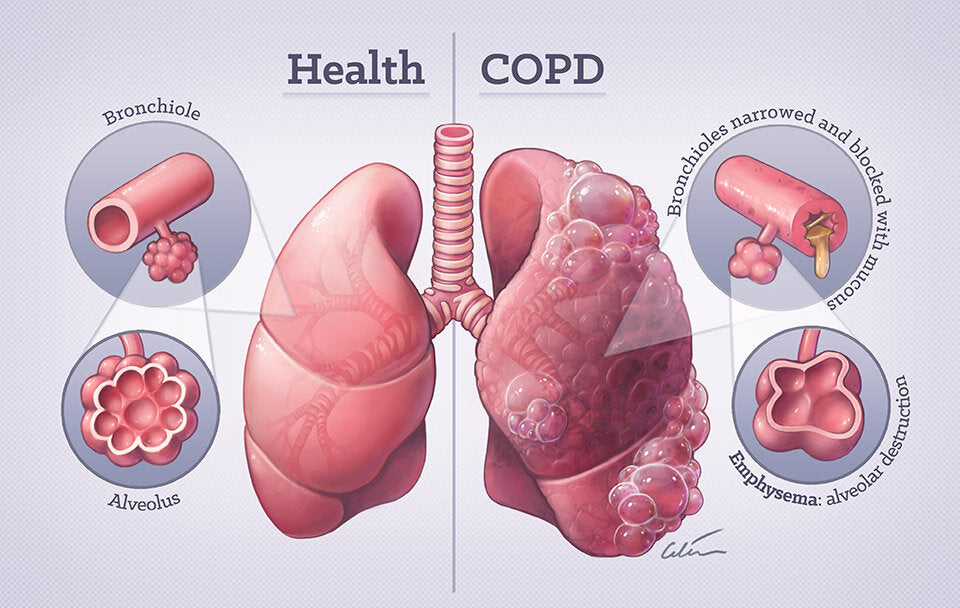OSITO Oxygen Concentrator Tips——What Does Stage II COPD Mean?
As chronic obstructive pulmonary disease(COPD) worsens, the flow of air to and from your lungs gets increasingly limited making it gradually more difficult to breathe. Once you’ve reached Stage II COPD, otherwise known as moderate COPD, your lung function becomes reduced to between 50% and 79% of the predicted normal[1]. What else should you expect during State II COPD?
What to Expect in Stage II COPD
At this stage, you’re probably just starting to notice COPD symptoms, particularly shortness of breath that worsens with activity. You may also notice your cough is getting worse and you have more mucus than you usually do[2].
In the first stage of the disease, you may not have noticed any symptoms or you may have associated them with smoking or something else entirely. You’re not alone. Many people miss the early signs of COPD. That’s why it’s usually during Stage II, moderate COPD that most people become troubled by their symptoms and seek medical attention.
Diagnosing Stage II COPD
As with other stages of COPD, to make a diagnosis of Stage II, moderate COPD, your doctor will do a physical exam and ask about your health and smoking history. She’ll similarly want to know about your exposure to other airway irritants, such as dust or chemical fumes in the workplace. You’ll also take a spirometry test, a simple breathing test that confirms a diagnosis of COPD and tells your doctor what stage you’re in. There are 4 stages of COPD, from mild to very severe. As we mentioned above, you’ll have Stage II, moderate COPD if your forced expiratory volume in one second (FEV1) – one of the measurements taken during a spirometry test – is between 50% and 79 percent. You may also get other diagnostic tests, such as a chest X-ray, CT scan, blood tests and exercise tests that will reveal more information about your lung function and the impact COPD has had on other parts of your body.
Treatment for Stage II COPD
The Global Initiative for Chronic Obstructive Lung Disease (GOLD) has recommended treatment guidelines for every stage of COPD. As the disease progresses, additional treatment options may be added to your treatment plan to help better manage your symptoms.
To follow are GOLD treatment guidelines for moderate COPD:
- Smoking cessation – is the single most important aspect of COPD treatment. Quitting smoking in the early stages of the disease can dramatically slow the progression of the disease allowing you to live a longer, happier life.3
- Flu and pneumonia vaccines – are recommended for every stage of COPD. Flu shots reduce your risk of COPD exacerbation, a period of time when your symptoms worsen. Pneumonia vaccines help prevent pneumococcal pneumonia, a common cause of COPD exacerbations or flare-ups.
- Short-acting inhaled bronchodilators – commonly referred to as rescue inhalers. Recommended for all stages of the disease to relieve sudden-onset dyspnea (shortness of breath).
- Long-acting inhaled bronchodilators – are recommended as maintenance therapy for moderate, severe, and very severe COPD. Taken on a daily basis to decrease symptoms and reduce the risk of COPD exacerbations.
- Pulmonary rehabilitation– is recommended for all patients with COPD. Combines a program of education and exercise that provides COPD patients with many benefits, including improved symptoms, increased exercise tolerance, and prolonged survival.
- Healthy nutrition – is a commonly overlooked, but important part of COPD treatment. Healthy eating helps people with COPD look and feel, and breathe easier and may even reduce the risk of lung infections that lead to COPD exacerbation.
For more information about Stage II COPD, including symptoms, diagnosis, and treatment, talk to your primary care provider or pulmonologist.
[1]Global Initiative for Obstructive Lung Disease (GOLD). GOLD 2018 Global Strategy for the Diagnosis, Treatment, and Prevention of COPD.
[2] Stage II (Moderate Stage) COPD. WebMD. Last reviewed February 14, 2018.
[3] Ferguson, Gary T. Maintenance pharmacotherapy of mild and moderate COPD: What is the Evidence? Respiratory Medicine. 105, 1268-1274.




Leave a comment
This site is protected by hCaptcha and the hCaptcha Privacy Policy and Terms of Service apply.